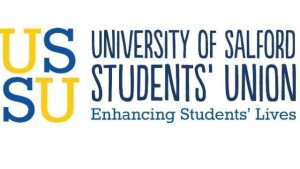OCTOBER is Black History Month in the UK. A month that looks into the culture, arts and achievements of Black Minority Ethnic (BME) groups. The origins of the event can be traced back to 1926 when American historian, Carter G. Woodson and minister, Jesse E. Moorland, founded the Association for the Study of Negro Life and History (ASNLH).
The origins of the event can be traced back to 1926 when American historian, Carter G. Woodson and minister, Jesse E. Moorland, founded the Association for the Study of Negro Life and History (ASNLH).
Together they declared the second week of February in the United States, “Negro History Week.”
The initial aim of this week was to educate school children on African American history but over time this developed into Black History Month which is aimed at all members of society and is celebrated in the UK, Canada, and the United States.
This is only the second year in a row that University of Salford Student’s Union (USSU) has celebrated Black History Month, this time by hosting a range of events such as a hip-hop night, karaoke nights, and pop quizzes.
Ceewhy Ochoga, the USSU president said: “Black people have contributed to a lot of great things and they should be celebrated.”
Alongside achievement, the USSU’s theme for this year’s events is ‘Faces in the Crowd’ which is a theme that stems from the fact that black people are a minority in the UK.
Ochoga believes that black people are faces in a crowd of non-black people, and so find it harder to be noticed.
Therefore when a black person does achieve they have the potential to stand out in this crowd, as the first or a minority of their race to achieve a certain thing.
Ochoga cited a number of famous examples of black faces in the crowd including: athlete Mo Farah, who moved to the UK at eight-years-old, unable to speak the language yet grew up to be one of GB’s most successful distance runners; having won multiple events including the Olympics, the European Championships, and the World Championships.
Ochoga herself is an example too, as the first black president of University of Salford’s Students Union, she serves as a reminder that black people can achieve great things, and make their mark within the crowd.
It could be easy to get lost in this crowd, hence why Black History Month is important to BME groups. It allows them and their achievements to be recognised exclusively.
This theme of achievement is shown in the USSU campaign video available on their website, which celebrates the diverse areas of education and work that black students are involved in.
Ochoga says: “This month might be called Black History month but it is not just about black people.
“It is about everyone coming together and appreciating black history, a history we all share, as it has helped shape the world we live in today.”
Paying close attention to the achievements of the minority groups this month shows an appreciation and commitment to racial inclusivity.
Something which is particularly important now, in a post-Brexit society, where the question of ‘are we going backwards’ in terms of racial equality, is particularly prevalent.
High levels of participation from all groups could therefore enable this event to be a vehicle for positive social change at an arguably crucial time.
Ochoga believes that interest from students in Black History month has improved slightly from last year, in particular with, “a lot more [interest] in terms of publicity and branding.”
The president sees this month as an opportune time for non-BME students to join together with BME students, suggesting: “There’s no better time for us to get together than now.”
This month is a time to say thank you, for Black people’s contributions to the world we live in today.”
USSU have put a lot of effort into this year’s celebrations and what is needed now is for as many students as possible to get involved and enjoy them. More information on the events taking place can be found on the USSU website.
By Elliot Thompson














Recent Comments